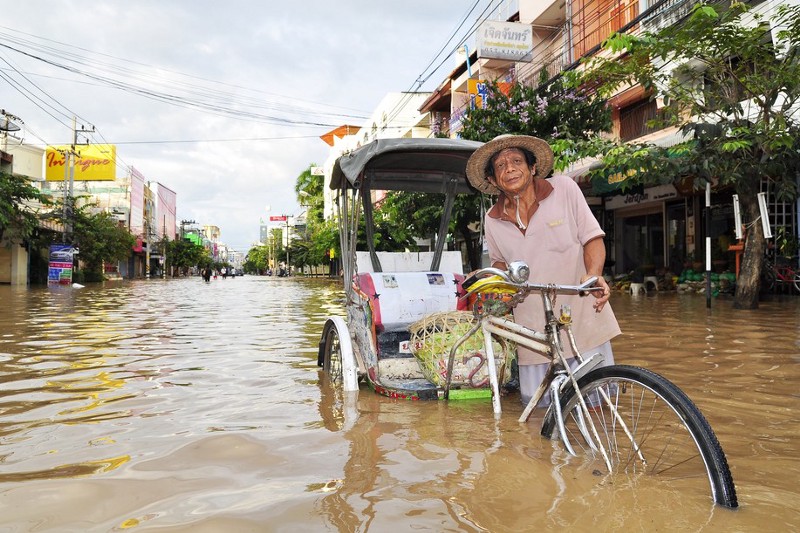
OVERVIEW
MANAGEMENT
PERFORMANCE
POSSIBILITIES
CAPITALS
ACTIVITIES
ACTORS
BURGESS

| |||||||||
| HOME | SN-BRIEFS |
SYSTEM OVERVIEW |
EFFECTIVE MANAGEMENT |
PROGRESS PERFORMANCE |
PROBLEMS POSSIBILITIES |
STATE CAPITALS |
FLOW ACTIVITIES |
FLOW ACTORS |
PETER BURGESS |
| SiteNav | SitNav (0) | SitNav (1) | SitNav (2) | SitNav (3) | SitNav (4) | SitNav (5) | SitNav (6) | SitNav (7) | SitNav (8) |
| Date: 2025-04-08 Page is: DBtxt001.php txt00012943 | |||||||||
|
CLIMATE CHANGE
FINANCING Developing Countries Need A Lot More Investment To Adapt To Climate Change 
An unidentified elderly man holding a bicycle through the flood on September 30, 2011 in Chiangmai, Thailand. CREDIT: SHUTTERSTOCK https://thinkprogress.org/developing-countries-need-a-lot-more-investment-to-adapt-to-climate-change-a114625e601d#.yrh4kb786 and Open pdf ... UNEP-Adaption-Gap-Report-2014.pdf Peter Burgess COMMENTARY Peter Burgess |
|
Developing Countries Need A Lot More Investment To Adapt To Climate Change
Written by Jeff Spross Dec 9, 2014 Developing countries will need to invest three to five times more in climate change adaptation by 2050 than previously thought, according to a new international report. Over the course of 2014, the United Nations’ Intergovernmental Panel on Climate Change released its 5th Assessment Report, rounding up the latest science on climate change. That report estimated that, even if the world succeeds in holding global temperature rise to 2°C, poorer countries will still need to invest $70 to $100 billion every year between now and 2050 to deal with the rising seas, storms, droughts, and other forms of extreme weather events that will come. But the “Adaptation Gap Report 2014,” released on Friday by the U.N.’s Environment Program (UNEP), concluded the number is more likely $250 to $500 billion annually by 2050. According to UNEP’s press release, the earlier projections were derived from numbers provided by the World Bank. The new projections included “new national and sector studies in its analyses and modeling,” and was “produced in collaboration with 19 leading institutions and research centers.” “National authorities and the international community should take the necessary steps to ensure the funding, technology and knowledge gaps are addressed in future planning and budgeting,” said UNEP’s Executive Director Achim Steiner. “Of particular concern are the implications on least developed countries, whose financial resources for investing in development will need to be redeployed to financing adaptation measures”. “The report provides a powerful reminder that the potential cost of inaction carries a real price tag. Debating the economics of our response to climate change must become more honest.” The 2°C threshold is what scientist and policymakers have generally settled on to mark the point at which climate change will likely become a significant danger to human civilization. But the chances that the world will cut its greenhouse gas emissions fast enough to keep under that ceiling are looking increasingly slim — and the UNEP report said that adaptation costs could double again over the $250-$500 range by 2050 if temperature rise reaches 4°C. Furthermore, there’s reason to worry the effects of climate change could be considerably more severe than expected even if we hold to the 2°C pathway. Precisely because they lack the infrastructure and robust economic development of their advanced peers, poorer nations are both the most vulnerable to those effects, and the most in need of financial aid. Meanwhile, economically advanced countries like the United States, because they have so much more wealth per person, have far more room to invest in fighting and adapting climate change — and to help their neighbors do the same — without threatening their populations’ economic livelihood. “The report leaves no doubt, adaptation must be at the heart of a long-term agreement developed here in Lima,” said Jan Kowalzig, a policy advisor for the international development organization Oxfam, referring to a climate summit in Peru this week. That meeting is a run-up to international talks that will be held in Paris in 2015, where just what the international community will do to cut its emissions — and how far developed countries will go in aiding developing ones — will be hammered out. “Communities around the world are drastically unprepared for the costly impacts of climate change, which is already destroying lives and livelihoods every day,” Kowalzig continued. Measuring the “adaptation gap” is difficult, as UNEP acknowledges, because it has to allow for “differences in societal values and preferences with regards to determining a ‘desirable’ level of adaptation at local, national, regional and global levels.” It can also be hard to track private sector contributions and domestic spending by governments in poorer and less developed nations. That said, UNEP’s analysis concluded that between $23 and $26 billion was spent in 2012 and 2013 on climate adaptation by public sources, 90 percent of that in developing countries. So far, the U.N.’s Green Climate Fund has raised over $9 billion from advanced countries to help the developing world grapple with climate change. “This startling report opens up a window onto a nightmarish future, where the global economy is crippled and the most vulnerable countries are even further disadvantaged,” added Sandeep Chamling Rai, a senior global adaptation policy adviser at WWF, an international climate group. “This is not a gap, it’s an abyss. We can avoid falling into it, but we’re running out of time.” |
|
|
| The text being discussed is available at and |
|
SITE COUNT< Blog Counters Reset to zero January 20, 2015 | TrueValueMetrics (TVM) is an Open Source / Open Knowledge initiative. It has been funded by family and friends. TVM is a 'big idea' that has the potential to be a game changer. The goal is for it to remain an open access initiative. |
| WE WANT TO MAINTAIN AN OPEN KNOWLEDGE MODEL | A MODEST DONATION WILL HELP MAKE THAT HAPPEN | |
|
The information on this website may only be used for socio-enviro-economic performance analysis, education and limited low profit purposes
Copyright © 2005-2021 Peter Burgess. All rights reserved. Last modified 04/08/2025 05:45:47 | ||